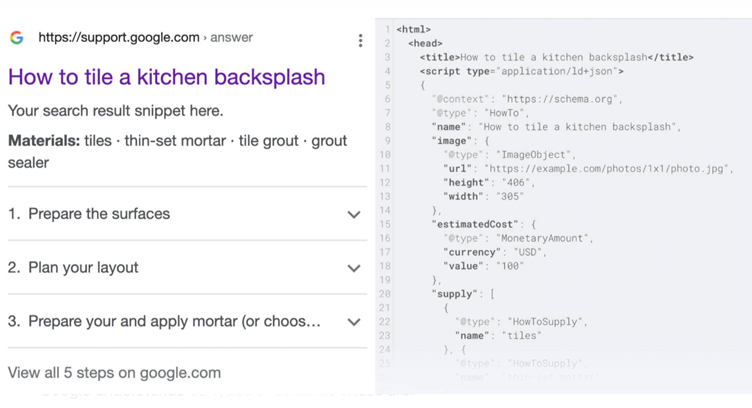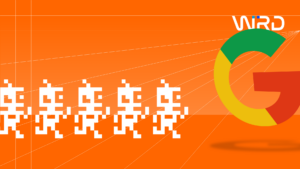Search Engine Optimisation (SEO) is a field that requires constant adaptation to keep up with the evolving digital landscape. In recent years, the integration of Generative Artificial Intelligence (AI) and Large Language Models (LLMs) has revolutionised the way in which SEO professionals optimise websites. In this blog, we’ll be expanding on our article tackling the basics of How AI is Used in Digital Marketing by focusing specifically on the influence of AI-generated content for SEO. So, without further ado, let’s investigate some of the top ways that Generative AI & LLMs can provide support on a range of SEO tasks.
Content Generation
Managing full-funnel marketing strategies and digital campaigns takes up valuable time and resources, whether it be with keyword research or crafting amazing blogs (much like the one you’re reading now). To this end, tools like ChatGPT 3.5 can be a lifesaver for busy marketers wanting to streamline their operations. Generative AI can effectively produce a range of high-quality content for websites including blogs, meta-descriptions, image alt tags and product descriptions just to name a few. While, as we’ve already covered in our blog examining the Limitations of Generative AI & LLMs, we don’t suggest you take the suggestions of these tools as gospel. They can be prone to a range of wacky hallucinations and therefore require close review by subject matter experts before publication. That being said, for a preliminary approach, having ChatGPT 3.5 quickly produce content can be great for inspiring ideas and overcoming the sense of dread a blank Word document evokes. As such, making Generative AI & LLMs part of your content planning process is a great way to get the ball rolling and stop procrastination in its tracks.
“In delay there lies no plenty.” – William Shakespeare
Keyword Research and Analysis
Keyword research and analysis are fundamental to the success of SEO campaigns. Only by understanding the searches of your target audience will you be able to tailor content that best serves their various needs. With this in mind, Generative AI and LLMs can help SEO experts identify relevant keywords, long-tail phrases, and semantically related terms that can enhance content visibility in search results. Of course, it’s important to understand that these tools don’t have access to the most up-to-date data on search trends and, as such, their suggestions should be checked against industry-leading keyword research tools like SEM Rush, Ahrefs or Moz. However, while Generative AI might not have insights into search volumes for specific keywords, it’s more than capable of categorising them based on search intent. Whether a keyword is Navigational, Informational or Transactional (amongst other categories) can completely change how that term is targeted on a website’s landing page. In this way tools like ChatGPT 3.5 can be leveraged to provide outstanding on-page optimisation, just don’t forget to double-check their suggestions first.
“remember that LLMs will hallucinate; pressed in the right way, they WILL give you information that’s completely detached from reality because the predictions on the word order make sense” – Gary Illyes (Google Search Analyst)
Structured Data Markup
Structured data such as Schema Markup is an integral part of technical SEO wherein website content is categorised to make understanding it as easy as possible for search engines. With well-executed Schema markup, there’s also an increased possibility of your landing page forming part of a featured snippet on Search Engine Results Pages (SERPs). With Generative AI, quickly creating and implementing code for Schema Markup has never been easier and can save SEOs and front-end developers alike valuable time and resources.

But this isn’t limited to just what search engines are reading on your page, an expert SEO strategist understands that user accessibility should always be a top priority when optimising website pages. Generative AI can also be used for writing ARIA Markup, a type of structured data designed specifically to make navigating websites easier for website visitors using screen readers or other forms of assistive technology. By taking full advantage of Generative AI, SEOs can make a conscious effort to make the digital space more accessible for all users.
Multilingual SEO
For businesses operating in multiple regions and languages, LLMs can help translate and adapt content for international SEO strategies. They ensure that the content is not only accurately translated but also culturally and contextually appropriate. Of course, this is something that requires thorough review before publication although it’s a great starting point for preliminary translation tasks. Coupled with in-depth, geo-targeted keyword analysis, SEO experts can streamline website optimisations for international audiences.
Creating “Helpful Content”
With the advent of Google’s ‘Helpful Content Update’ in August of 2022, there has been much debate in the SEO sphere as to whether AI-generated content will be penalised by search algorithms. In response to a flurry of speculation, Google has clarified that the medium through which content is produced will always fall secondary to its overall helpfulness. Content written for the people and by the people seems to be the line frequently brought to such discussions. Where, instead of optimising content for Search Engine bots, the best results will come from SEO specialists who put users first. With this in mind, AI generated content can be incredibly helpful for SEO tasks looking to produce prime examples of ‘helpful’ content such as FAQ sections or author bios. These tools can even review existing website copy and provide suggestions that improve the overall user experience with clear, concise content. Again, it’s of paramount importance that these suggestions are reviewed by subject matter experts prior to publication. When in doubt it’s best to read up on Google’s ‘Helpful Content Guidelines’ so that the quality of your website copy can be beyond dispute.
“if you’re an SEO trying to figure out how AI fits in with being successful or not on Google, you’re too focused on the tool not the content. Is the content you’re producing helpful, reliable and people-first in nature? That’s what we’re looking for.” – Danny Sullivan (Google’s Public Liaison for Search)
Get in Touch
If you’re considering how Generative AI & LLMs can increase the online visibility of your business, feel free to get in touch with our talented team of SEO experts. We take pride in staying up to date with the latest industry insights and best practices to help give your business a competitive edge in the constantly evolving digital landscape.



